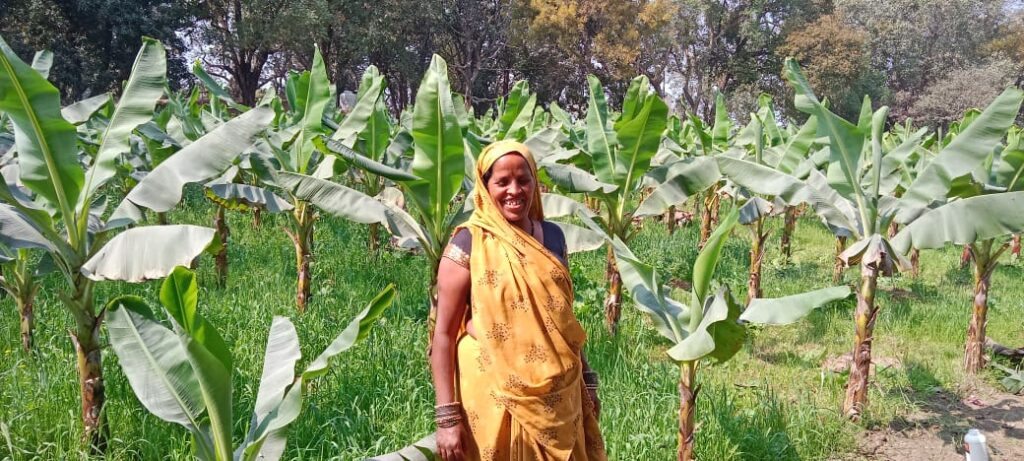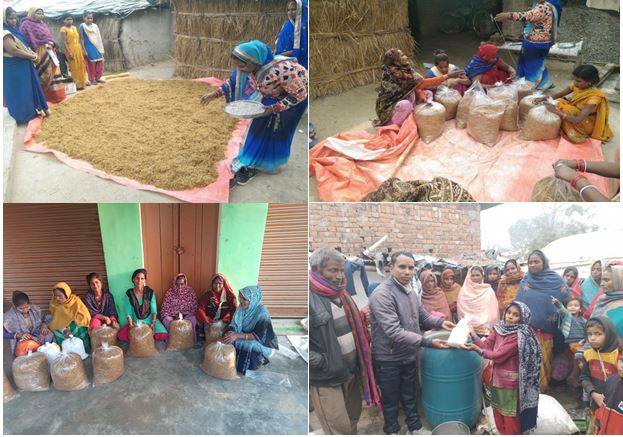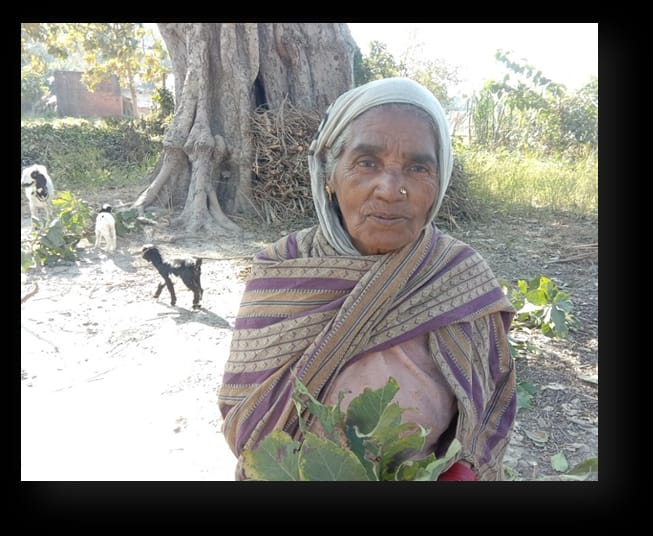Success Stories
From Traditional Agriculture to Prosperity: The Inspiring Journey of Rajkumari
In 2016, Rajkumari made a bold decision to abandon traditional agriculture and venture into multilayer farming for vegetable production on her one-acre land. She began with commercially viable crops, such as onions and bottle gourds, and sold the produce herself in the local retail market. Her net profit for the first year was an impressive Rs. 85,000.
As the years went by, Rajkumari’s profit margin from vegetable cultivation increased substantially, and she became more prosperous. Her confidence level grew, and in 2018, she decided to add banana cultivation to her repertoire. She leased another acre of land and earned approximately Rs. 200,000 in net profit during the year.

In 2021, Rajkumari attended a microenterprise development training program and diversified her agricultural and allied activities by starting her own poultry farm.
Today, Rajkumari is one of the most prosperous farmers in the area, owning a modern house with all amenities and providing a high level of education to her children. Her prosperity over the last ten years is a result of her consistent effort, hard work, persistence, and focused planning. She has become a role model for her local community of farmers, proving that with dedication, devotion, and determination towards your goals, nothing is impossible.
The Rise of Mushroom Cultivation: A Promising Income Source for Rural Women and Farmers
The popularity of mushrooms is on the rise due to their nutritional benefits such as being rich in minerals, vitamins, low in fat and sugar, and a good source of protein containing essential amino acids. Certain varieties of mushrooms are also known for their medicinal properties and their ability to inhibit the growth of cancerous tumours. Mushroom cultivation can be an effective use of leisure time and a labour-intensive enterprise that can become a lucrative business for rural youth, self-help groups, farm women, and farmers seeking additional income sources.
Mushroom cultivation is eco-friendly and can utilize agricultural waste to produce fruiting bodies with excellent nutritional and medicinal properties. In pursuit of empowering rural women financially and improving their quality of life, the PAID – ERW program team organized four training programs on mushroom cultivation. These programs not only provided necessary training but also marketing facilities to encourage non-farm activities.
The training programs were held in each block of the project area and were attended by a total of 110 women who initiated oyster mushroom cultivation on a micro-level with a buy-back arrangement for their production. The impact of the training programs was immense on the mindset of the participants and other women, and it showed the potential for mushroom cultivation to provide a promising and viable activity for those seeking additional income sources.

Zahrunnisa- a Role Model for Women Entrepreneurs
With only 0.25 acres of agricultural land and no consistent source of income for her family, Zahrunnisa adopted goat rearing as a means of enhancing her income. She became one of the most active members of the Nari sangh, a local women’s group, and shared her success story with them.
Zahrunnisa contacted the Women Farmer Resource Centre (WFRC) based in Gaddopur to seek guidance and knowledge input. With the help of the project team, she started goat rearing with only two goats and a small investment of 6000 rupees. She attended the micro-enterprise development (MED) training program on goat rearing organized by the project team, which had a remarkable effect on her business.


